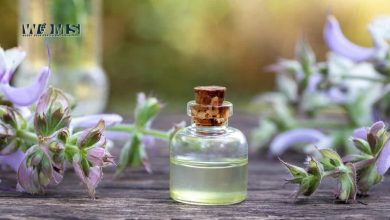Skin Problems: How to Protect Your Skin?

Our skin is a vital organ of the body that protects all internal organs from any external harm. Skin is the first line of defense our body has, and this is why it has to take in a lot daily. From sun exposure to dust to grime and smoke, skin bears a lot.
Caring for your skin should be an essential part of your daily routine. Skincare routine can be straightforward and challenging at the same time. From the variety of products available to not being able to assess the skin ailment, the task can be arduous.
But, you do not have to visit the doctor for regular consultations. Patients can use digital mediums to get in touch with the best skincare specialists without going outside. For instance, individuals can use an online health card to seek consultation from home and get prescriptions for skin products and medicines.
With seasoned consultation and a stellar skincare routine, you can say goodbye to many skin woes like premature aging, chapped lips, dark spots, and identify critical issues.
So let us talk about the different skin issues and how you can deal with them.
Protect Your Skin While You Go Out In The Sun
Sun exposure is the one most common reason that can lead to multiple skin conditions. The sun’s UV rays can damage your skin and give rise to various other conditions and even skin cancer with prolonged exposure.
Some of the common skin conditions that sun exposure gives you are wrinkles, dark patches or spots, freckles, age spots, discoloration of the exposed skin, certain benign growth, etc.
Dermatologists always suggest skincare products that have SPF to protect your skin against harmful UV rays. A sunscreen with SPF above 40 is recommended for people who stay out a lot. Reapplying sunscreen after every one hour is also needed when your outdoors is extended.
Apart from that, using caps, hats or scarves is necessary to cover the bare skin of the face and neck. Wearing full sleeve dresses is a great way to protect your arms during hot summer months.
Hydration is the Key
We hear a lot that a well-hydrated body remains fit. Similarly, properly hydrated skin remains radiant, youthful, and problem-free. You can even cure some major skin problems such as aging, dryness, and dullness by keeping optimum hydration levels.
Here, hydration refers to consuming fluids and using hydrating and moisturizing skin care products daily. You can drink healthy smoothies, green tea, and adequate amounts of water to prevent dehydration. Plus, using moisturizer or hydrating skin lotions helps retain the skin’s moisture and hydration level.
Dry skin is a problem that can give rise to many other severe skin conditions if not taken care of early. Properly hydrated skin is free from chapped or scaly texture and retains pliability. Try to get in touch with a skin specialist in Pune or your respected city if you face dry skin issues for a long time. The root cause of your problem could be diet factors, lack of hydration, or something else. Only an experienced dermatologist can advise you on the best solution for your skin type.
Skin-specific and Gentle Skin Care Products
Use a skincare brand that uses gentle ingredients and is dermatology tested. Not all brands will suit you. It would help if you learned about your skin type and then choose the right skincare brand that suits your skin conditions.
Even if you practice a do-it-yourself method skincare regimen, make sure you don’t use any harsh ingredients on your skin. For instance, using too much face wash or over-scrubbing will only lead to dryness, open pores, and even lead to sensitivity.
As per dermatology recommendation, the following skincare routine is the standard advice:
- Wash your face twice daily with a mild cleanser and use vitamin c spray as it is safe for all skin types
- Scrub face once or twice a month.
- Gently massage your face with a hydrating lotion or face moisturizer.
- Never rub your skin. Always pat your face after washing.
- Bath thoroughly after using body wash or soap, and apply body lotion afterward.
Understand Skin Types
As said earlier, not all skin types are the same. Every individual possesses a unique skin pattern. You could have dry skin with rashes and spots, while another person could have oily but problem-free skin. This is why knowing what skin type you have can prove very beneficial for you. You can tailor your skincare needs as per your skin type and conditions that you have.
Talk to a skin doctor to know more about skin types and what should be your skincare routine. You can now find dermatologists near you with the help of a health card online and book an appointment.
Follow a Good Lifestyle
Your lifestyle affects your skin and overall health. Adequate sleep, a healthy diet, and exercises contribute to better and beautiful skin. Avoid spicy and fried food and adopt home-cooked meals. One must sleep for 7 to 8 hours a day to get youthful skin. Sleeplessness and stress can lead to premature aging and dull skin over time.
When to See a Dermatologist?
Several skin conditions require an expert’s advice for the proper treatment. Some disorders have common symptoms, and you can quickly identify them. But some skin conditions remain hidden. Make sure you always check your skin for any unusual changes in color, texture, or appearance, such as the presence of moles, dark spots, peeling, reddish bumps, blisters, etc.
Some of the most noticeable changes that can tell you to see a dermatologist are:
- Pus-filled reddish bumps with or without pain.
- Itchy rashes or excessive acne.
- Scaly or very rough skin.
- Skin ulcers, open sores or lesions.
- Dehydrated and cracked skin.
- Discoloured skin.
- Stubborn blemishes.
- Changes in mole size or colour.
Even without any specific skin woes, you may visit a dermatologist to understand your skin type and choose suitable skin and hair care products. You do not have to keep trying different products to see if it suits you and ruin your skin and hair along the way.
If you love your skin, you have to be serious about maintaining it. To understand how you can keep your skin healthy, consult a dermatologist.




